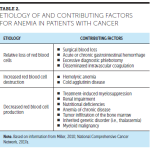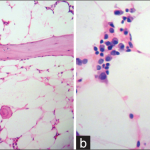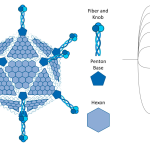Cancer treatment is a journey that requires resilience, hope, and a deep understanding of its complexities. While chemotherapy has been a lifesaver for millions, it also comes with unforeseen consequences – anemia being one of the most common and concerning side effects.
Anemia from Chemotherapy Treatment: Bone Marrow Suppression Result
As cancer patients undergo treatment, they often face a daunting array of challenges. Fatigue, hair loss, and nausea are just a few examples of the physical toll chemotherapy can take. However, anemia, a condition characterized by a reduced number of red blood cells or hemoglobin, is a particularly insidious symptom that can have far-reaching implications for overall health and quality of life.
The Link Between Chemotherapy and Anemia
Chemotherapy works by targeting cancer cells with the aim of killing or stopping their growth. In doing so, it also affects healthy cells in the bone marrow, including those responsible for producing red blood cells. This suppression of bone marrow function can lead to a decrease in red blood cell production, resulting in anemia.
As we delve into the specifics of anemia from chemotherapy treatment, it’s essential to understand that this condition is not just a minor annoyance – it has significant implications for patients’ daily lives, from decreased energy levels and increased fatigue to impaired cognitive function and compromised immune systems. In the next sections, we’ll explore the causes, symptoms, and management strategies for anemia resulting from chemotherapy treatment, empowering readers with knowledge and hope to navigate this challenging aspect of their cancer journey.
Cancer treatment is a journey that requires resilience, hope, and a deep understanding of its complexities. While chemotherapy has been a lifesaver for millions, it also comes with unforeseen consequences – anemia being one of the most common and concerning side effects.
Anemia from Chemotherapy Treatment: Bone Marrow Suppression Result
As cancer patients undergo treatment, they often face a daunting array of challenges. Fatigue, hair loss, and nausea are just a few examples of the physical toll chemotherapy can take. However, anemia, a condition characterized by a reduced number of red blood cells or hemoglobin, is a particularly insidious symptom that can have far-reaching implications for overall health and quality of life.
The Link Between Chemotherapy and Anemia
Chemotherapy works by targeting cancer cells with the aim of killing or stopping their growth. In doing so, it also affects healthy cells in the bone marrow, including those responsible for producing red blood cells. This suppression of bone marrow function can lead to a decrease in red blood cell production, resulting in anemia.
According to the American Cancer Society, approximately 80% of patients undergoing chemotherapy will experience some degree of anemia. While this figure may seem staggering, it’s essential to understand that anemia is not just a minor annoyance – it has significant implications for patients’ daily lives, from decreased energy levels and increased fatigue to impaired cognitive function and compromised immune systems.
Symptoms of Anemia from Chemotherapy
As anemia develops, patients may experience a range of symptoms, including:
- Fatigue or weakness
- Pale skin color due to reduced hemoglobin levels
- Dizziness or lightheadedness
- Shortness of breath
- Muscle cramps and spasms
It’s crucial for patients to be aware of these symptoms and report them to their healthcare team promptly. Early detection and management can significantly impact the effectiveness of treatment and overall well-being.
Management Strategies for Anemia from Chemotherapy
While anemia is a common side effect of chemotherapy, there are various strategies that patients can employ to manage its symptoms:
- Erythropoietin (EPO) injections: EPO stimulates the production of red blood cells, helping to alleviate anemia symptoms.
- Blood transfusions: In some cases, patients may require blood transfusions to replenish their red blood cell count.
- Iron supplements: Iron deficiency is a common complication of chemotherapy-induced anemia. Supplementing with iron can help alleviate symptoms.
- Pacing and self-care: Patients should prioritize rest, avoid strenuous activities, and engage in stress-reducing practices to manage fatigue and other symptoms.
For more information on managing anemia from chemotherapy treatment, patients can consult the National Cancer Institute’s website or speak with their healthcare team. By understanding the causes, symptoms, and management strategies for anemia resulting from chemotherapy treatment, patients can better navigate this challenging aspect of their cancer journey.
In our next section, we’ll delve deeper into the specifics of anemia management and explore ways to optimize treatment outcomes.
Expert Consultation for Anemia from Chemotherapy Treatment
Get personalized guidance on managing anemia symptoms and treatment options.
Consult with a Medical & Health ExpertCancer treatment is a journey that requires resilience, hope, and a deep understanding of its complexities. While chemotherapy has been a lifesaver for millions, it also comes with unforeseen consequences – anemia being one of the most common and concerning side effects.
Anemia from Chemotherapy Treatment: Bone Marrow Suppression Result
As cancer patients undergo treatment, they often face a daunting array of challenges. Fatigue, hair loss, and nausea are just a few examples of the physical toll chemotherapy can take. However, anemia, a condition characterized by a reduced number of red blood cells or hemoglobin, is a particularly insidious symptom that can have far-reaching implications for overall health and quality of life.
The Link Between Chemotherapy and Anemia
Chemotherapy works by targeting cancer cells with the aim of killing or stopping their growth. In doing so, it also affects healthy cells in the bone marrow, including those responsible for producing red blood cells. This suppression of bone marrow function can lead to a decrease in red blood cell production, resulting in anemia.
As we delve into the specifics of anemia from chemotherapy treatment, it’s essential to understand that this condition is not just a minor annoyance – it has significant implications for patients’ daily lives, from decreased energy levels and increased fatigue to impaired cognitive function and compromised immune systems. In the next sections, we’ll explore the causes, symptoms, and management strategies for anemia resulting from chemotherapy treatment, empowering readers with knowledge and hope to navigate this challenging aspect of their cancer journey.
Key Points Covered So Far
Anemia is a common side effect of chemotherapy treatment, resulting from bone marrow suppression.
Chemotherapy affects healthy cells in the bone marrow, including those responsible for producing red blood cells, leading to decreased production and anemia.
Anemia has significant implications for patients’ daily lives, including decreased energy levels, increased fatigue, impaired cognitive function, and compromised immune systems.
Final Insights
As we continue on this journey with cancer patients, it’s crucial to remember that anemia is not just a physical challenge – it can also have profound emotional and psychological impacts. It’s essential for healthcare providers and caregivers to recognize the importance of addressing these underlying issues, providing support and resources to help patients cope with the physical and emotional toll of anemia.
A Strong Conclusion
In conclusion, anemia is a serious concern that cancer patients must face during their treatment journey. By understanding its causes, symptoms, and management strategies, we can empower these individuals with knowledge and hope to navigate this challenging aspect of their cancer experience. As we move forward, let us prioritize providing comprehensive support and care for those affected by anemia, recognizing the profound impact it can have on their overall well-being and quality of life.
The fear of being alone music video: Are you tired of feeling like you’re stuck in a rut, surrounded by people but still craving meaningful connections? This powerful music video is a must-watch for anyone struggling with the fear of being alone. With its poignant lyrics and soaring melody, it’s sure to resonate deeply with anyone who’s ever felt like they don’t quite fit in.
What is anemia caused by folic acid deficiency: Did you know that a simple vitamin deficiency can lead to a serious health condition? In this informative article, we dive into the world of anemia and explore what happens when your body doesn’t get enough folic acid. Don’t miss out on this opportunity to learn more about this common condition and how to prevent it!




